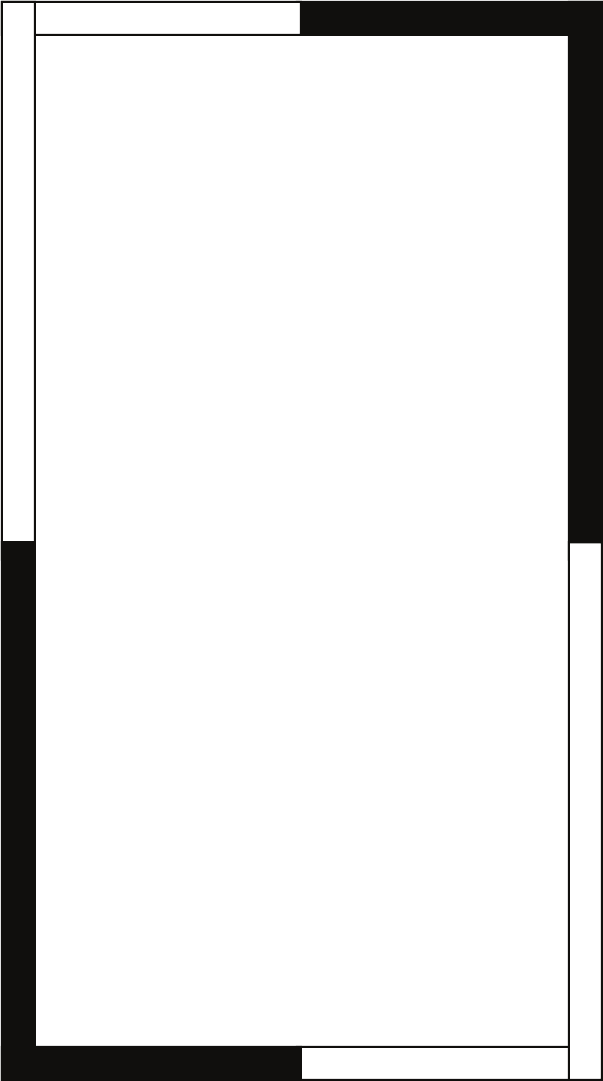
Page 17
deep enough to fully penetrate the drywall.
Step 4. Obtain a length of stiff wire such as a
straightened wire coat hanger. Bend it so that the
last 6 or 8 inches is at a right angle to the rest.
Step 5. Insert the bent part into the 1-inch hole
you just drilled and probe to the left and the right
to confirm that a joist is not too close on either
side. Move the wire around in a circular motion to
check clearances above and below the hole as
well.
Step 6. If there are no obstructions, carefully
score the penciled outline of the template with a
sharp utility knife to avoid chipping paint or
tearing wallpaper. Then use a drywall or keyhole
saw to cut along the scored line. Make sure that
you do not cut the hole larger than the outline.
Step 7. Be sure to clear any insulation material
from the speaker back.
Step 8. After you have determined the speaker
locations secure a 16 gauge 2 conductor cable to
the joist using an insulated staple. Leave at least
18 inches of additional cable for connection dur-
ing final speaker installation. Run the other end of
the speaker cable to the audio source.
Step 9. Prepare the speaker wiring by stripping
off approximately 3 inches of the outer jacket
(care should be taken so the insulation on the
wires inside the jacket are not damaged) also
strip approximately 3/8 inch off the ends of the
two inside conductors. Twist the ends of the
stranded cable so the wires are tight.
115986D.pdf 17115986D.pdf 17 11/16/2005 10:54:36 AM11/16/2005 10:54:36 AM


















